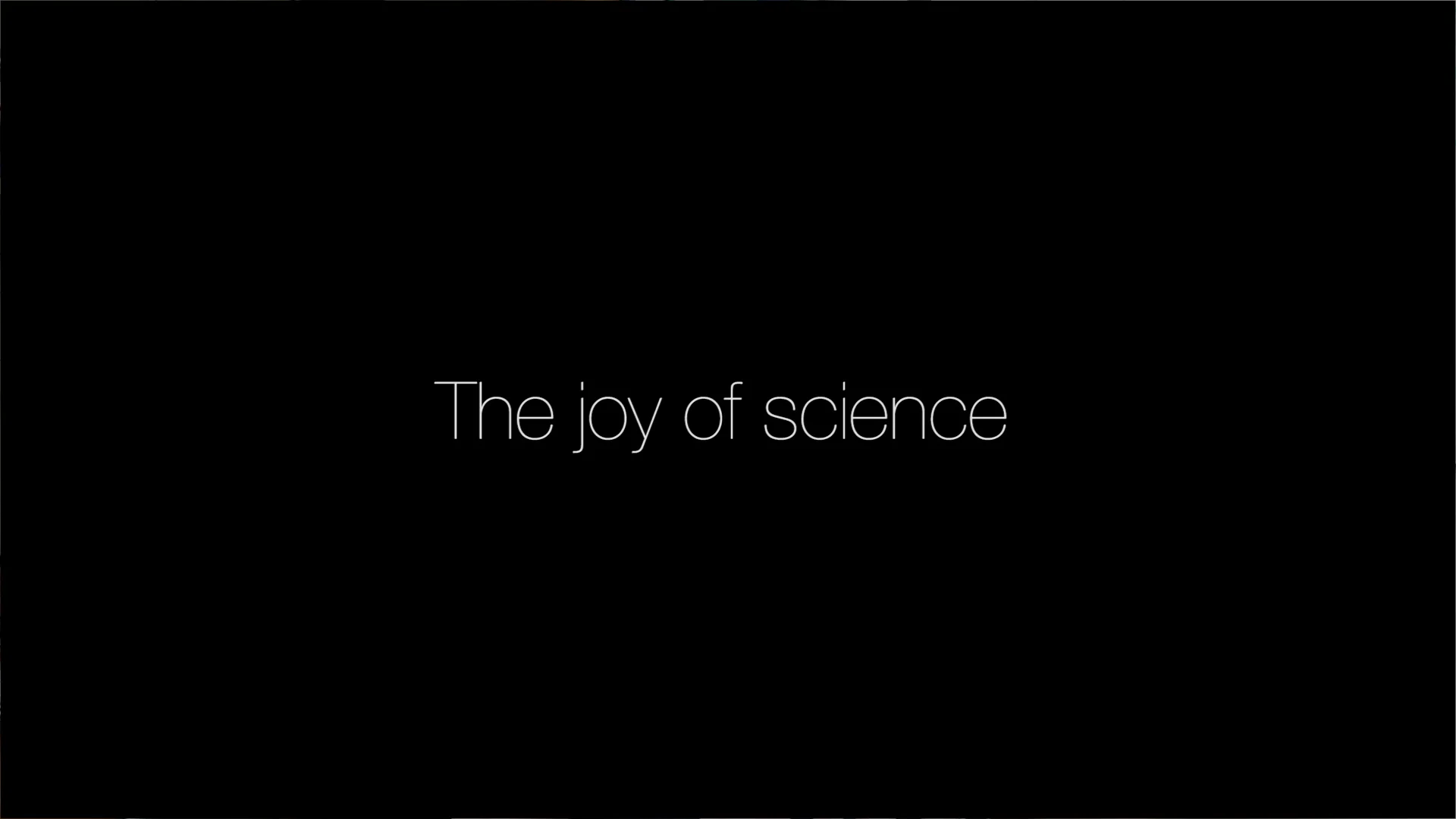TRANSCRIPT
“I never really planned to end up in science. I was always interested in it but I never wanted to pursue it from the first days, so I studied veterinary medicine because I always wanted to heal animals. Only towards the end of my studies I realized that every pet has an owner. I realized that wasn't what I wanted; I didn't want to deal with owners. So then I was looking around for alternatives.”
I started my PhD in a neurobiology lab and that was really fun. It was just playing around; it was like a big playground for not really grownups. There was a lot of things to be discovered, a lot of things to be done. I was lucky enough that my PhD supervisor let me do whatever I wanted while giving me support. So when I had a question I could go to him, but he would also let me do what I was interested in and what I wanted to do. And I realized how much I liked this and how much I loved this. And the freedom, this something which you probably can only have in academia, and that's why I'm still here I guess. It's just pure fun and I love it. “
-Kristian Franze, Ph.D.
Principle Investigator, Department of Physiology, Development, and Neuroscience, University of Cambridge
“Well I think it's just endlessly fascinating isn't it. And endlessly flexible and exciting that you can come into work and ask pretty much anything you want to ask.”
-James Fawcett, Ph.D., M.D.
Head of Department and Professor of Clinical Neuroscience, University of Cambridge
“I suppose it's the excitement of discovering something new. The excitement to feel, "Oh, I'm seeing this and no one else has ever seen it." And that's really exciting. I mean when I discovered IP3 I really had it – it was the most amazing moment. It just hit me like a ton of bricks. My wife can still remember me coming home and how excited I was at discovering... at that time it was a hypothesis but it just looked so right, all the data, and it just suddenly hit me, "Oh, IP3 is the second messenger for calcium release." And that was just such an overpowering moment.”
-Sir Michael Berridge, Ph.D.
Emeritus Fellow of Cell Signaling, Babraham Institute
“I mean a couple I guess. You know, discovering things - that's what everybody says – the first time, there's nothing like it. And one thing I miss, but I haven't given up entirely, is being the very first one to see it rather than a post-doc or a student who gets to be the first one to see it – that is fun. Peter Lawrence again is a good example of somebody who still does hands-on bench work. I do some, not as much as I'd like because sometimes things get the better of you. So that bit is great – the discovery.
But then the other bit is the interaction with other people, and the students and post-docs in your lab, when they do really well and you see them developing as scientists and then you know, they leave and that's always hard because you get really attached to them and can't imagine the lab without them. Then you see how they've moved on and are doing something completely different but doing really great work and that's fantastic too. I think those are the two things: the discovery and the people that you get to work with.”
-Margaret Scott Robinson, Ph.D.
Professor of Molecular Cell Biology, University of Cambridge
“It feels almost too good to be true to think that you could have a career, get paid to just find stuff out, follow your own nose, and not have to do necessarily what you're told but rather ask an interesting question. It's almost laughable that someone would pay you to do that.”
-Brian Hendrich, Ph.D.
Principle Investigator, Department of Biochemistry, University of Cambridge

